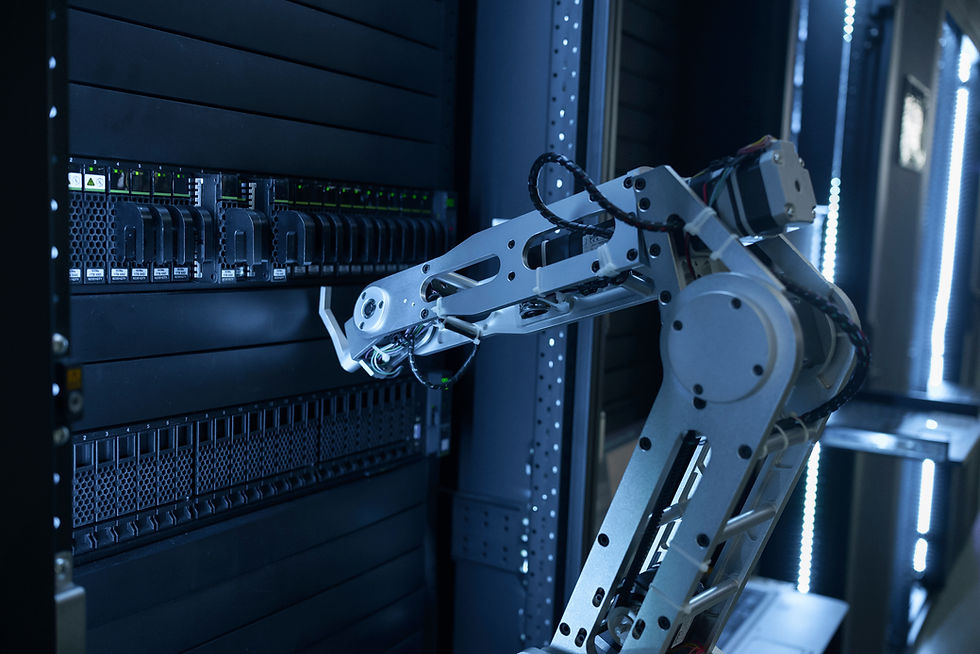AIs, writing, exploitation. Under no other name
- M.

- May 25, 2023
- 3 min read
Updated: May 28, 2023
It seems everyone is still worried about AI stealing writing jobs. The other day I was in this discord server discussing ideas for science-fiction short stories.
Writer A suggested:
"Hey, since AIs are being used to replace artists, I wanna write about a drawing AI that becomes sentient and gets tired of drawing porn for human beings. Like, if I was an AI, wouldn't I prefer drawing my own things in my own style?"
I was skeptical about this. It didn't sound right as a concept. I wanted to give A the benefit of the doubt. She added:
[...] I want to talk about the complete disregard and devalue of work, [...] to hammer home how far the exploitation goes
Work? Exploitation? At this point I was not only skeptical, but also quite confused.

Science-fiction has a long history of representing "exploitation", if not direct slavery. The term Robot comes from Karel Čapek's play "R.U.R.". It was written in 1920. The plot wouldn't surprise any modern science fiction fan: robots are made, are used, and revolt. Čapek's was writing the quintessential robot story that would stick with science fiction for a century to come.
I won't bore you with Asimov. You know his robots, I know his robots, everyone does. I'm just gonna remark on how docile they were, how honest, how direct - thanks to the imperative conditioning of their strict laws.
Fast-forward to modern times. There has been a shift in the culture because most of the robots in Netflix's catalogue turn murderous (I blame HAL9000 for this, but then again, Hal was massively misunderstood).
Point being: we had a metaphor for exploitation and we milked it dry.
Now, AIs are nothing new. At best, ChatGPT and his companion algorithms are a tool to play with, at worse, writers are going to experience something that the average factory worker has been well aware of from the last century: automation.
Did all those concerned writers complain when the factories relocated in countries with lower salaries and longer hours? Did we go on strike as the blue-collared masses got replaced by new machines?
Maybe someone did. I realize this is a weak point to make - there is a rich history of politically active writers, not to mention journalists. I could be just projecting my own perceived faults over a whole class of people.
Meanwhile, I'm thinking about something else:
Foreigners in Italy 'employed' as tomato pickers in conditions so bad they can be considered a new form of slavery (the guardian)
Foxconn's streak of worker suicides in smartphone-related factories (wiki, the guardian)
The UN's report on sex trafficking (here)
...and not a line of code was required.
Coming to the heart of my argument, I simply wanted to ask: what happened?
Why do we need to set up complex science fiction scenarios to illustrate what is the gruesome reality for a far too great number of people?
Are we so dug in our first-world, vapid society that we need to make up complex scenarios to touch upon real-world issues?
I am a speculative fiction writer as well, so I'm not exactly innocent. I like my made up worlds, I like my lazy speculative questions, I like my armchair politics. It's part of the job description.
But I cannot believe that we lost touch with reality so much that we need to vilify AI in order to make us feel better as people. There's something terrible in failing to recognize the suffering of real, present, fellow people at a point that they don't even factor in the discussion.
Yes, maybe some writer will join the factory worker on the path to obsolescence. The great wheel of late-stage capitalism churns and churns, crushing everything in its path.
While I still want to write science fiction, I don't want to abandon reality, and for sure I don't want to get blindsided by my own privileged condition.
In other words, it's time to go outside and touch grass.



Comments